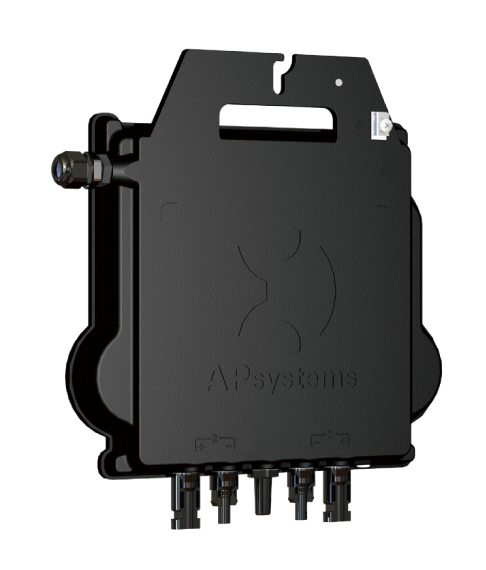DS3D
PV Microinverter
The APsystems solar inverter DS3D has an output power of up to 1900W, designed to accommodate today's higher-power modules. The product’s innovation and rigorous design maximize energy generation. It uses a special resin potting process to reduce stress on electronic components, improve heat dissipation, enhance waterproof performance, and ensure reliability through rigorous testing methods (including accelerated lifespan tests). The system can be monitored anytime via an app or portal, making maintenance and operation more convenient.
Product Specifications
| Model | DS3D | |
|---|---|---|
| DC Input | Recommended Module Power Range | 315Wp-670Wp |
| MPPT Voltage Range | 56V-90V | |
| Operating Voltage Range | 52V-118V | |
| Maximum DC Input Voltage | 118V | |
| Maximum DC Input Current | 20A x 2 | |
| Maximum DC Short Circuit Current | 25A x 2 | |
| AC Output | Rated Output Power | 1900W |
| Rated Output Voltage / Default Output Voltage Range(1) | 220V / 187V-242V | |
| Maximum Output Current | 8.64A | |
| Rated Output Frequency / Default Output Frequency Range(1) | 60Hz / 59Hz-61Hz | |
| Maximum Branch Microinverter Connection (2) | 3 units / 4 units | |
| Efficiency | Maximum Efficiency | 97% |
| MPPT Tracking Efficiency | 99.9% | |
| Nighttime Power Consumption | 20mW | |
| Mechanical Data | Operating Ambient Temperature (3) | -40°C to +65°C |
| Storage Temperature: | -40°C to +85°C | |
| Dimensions (L x W x H) | 284mm X 234mm X 50.2mm | |
| Weight | 4.3kg | |
| AC Cable Gauge | 12AWG(28A)/10AWG (35A) | |
| DC Connector Type | MC4 or MC4-compatible | |
| Cooling | Natural convection (fanless) | |
| Protection Rating | IP67 | |
| Other Features | Communication Method (4) | ZigBee wireless communication |
| Isolation | High-frequency transformer isolation | |
| Monitoring | System monitoring via APsystems EMA software | |
| Product Warranty | 12-year warranty | |
| Compliance | Certification Standards | CNS 15426-1 CNS 15426-2 CNS 15382 CNS 14674-1/2-/-3/-4 |
(1) Output voltage and frequency can be adjusted on-site via the ECU according to grid requirements.
(2) The number of microinverters per branch can be adjusted based on local grid regulations.
(3) In environments with poor ventilation and heat dissipation, the inverter may operate in power derating mode.
(4) To ensure communication quality, it is recommended that a single ECU registers no more than 80 microinverters.
* Our company is not responsible for any omissions, misstatements or non-factual statements (whether express or implied) in this product specification, please contact us for further information.



